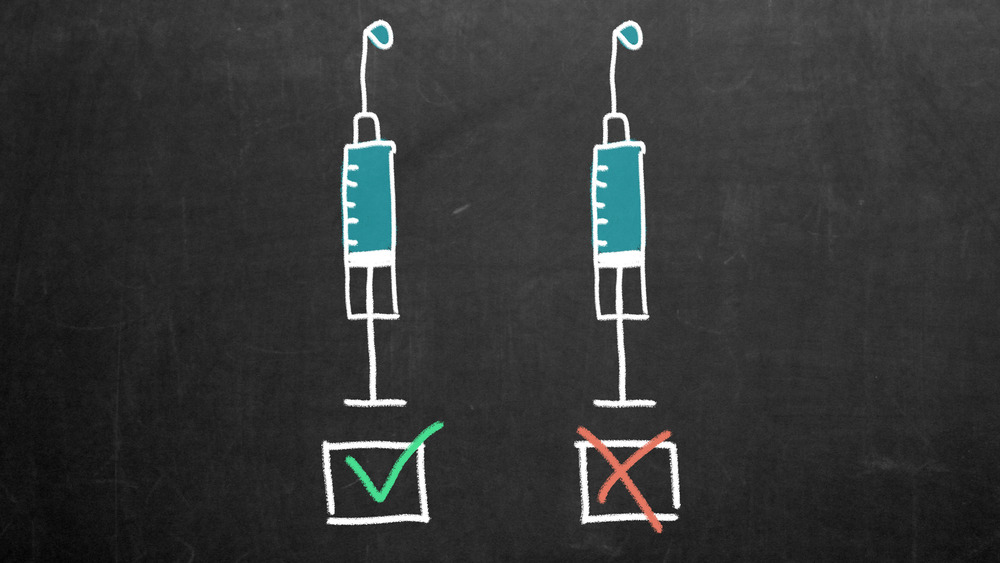Should You Take An Allergy Test Before Getting The COVID-19 Vaccine?
You might be feeling hesitant to get the COVID-19 vaccine if you have had allergic reactions before. There is a rare reaction of anaphylaxis, a potentially life-threatening allergic reaction that can happen after getting vaccinated. Fortunately, this severe allergic reaction has been rare, with 10 cases out of more than four million first doses of the Moderna vaccine, according to the Centers for Disease Control and Prevention (CDC) and the Vaccine Adverse Event Reporting System or VAERS. In nine out of the 10 cases, the onset of the anaphylactic shock started within 15 minutes of getting the shot. Those affected were treated with an intramuscular epinephrine injection or an epinephrine auto-injector.
Anaphylactic shock was just as rare in the Pfizer vaccine, with 21 incidents of the severe allergic reaction in nearly two million first dose shots, an average of about 11 per million. Again, they all happened within about 15 minutes of getting the first dose, according to a 2021 study published in the Journal of the American Medical Association or JAMA.
There haven't been any reported anaphylaxis cases with the Johnson & Johnson vaccine, but that could be because they are a little later to the game than Pfizer and Moderna. And the good news? There have been no deaths related to anaphylactic shock with the COVID-19 vaccinations.
What's being done for the rare cases of anaphylaxis?
The CDC guidelines for any place giving COVID-19 vaccines is to be prepared for these rare cases of severe allergic reaction. Patients getting the shot need to wait at the location for at least 15 minutes after receiving the dose, so providers can watch for symptoms of anaphylactic shock — hives, flushing, paleness, trouble breathing, wheezing, dizziness, fainting, nausea, diarrhea, vomiting, a rapid but weak pulse, and low blood pressure (via the Mayo Clinic). The CDC states that if anyone has these symptoms after receiving the vaccine, they should be immediately given an intramuscular epinephrine injection.
If you have had severe allergic reactions in the past, you will need to be careful. Bring your epinephrine auto-injector with you and pay attention to any symptoms after getting your first dose. If you experience anaphylactic shock after your first dose, the CDC recommends not getting the second dose, but always speak with your doctor about what's right for you.
Which vaccine you should get if you are allergic to an ingredient?
The CDC also recommends not getting the vaccine if you have had a severe allergic reaction to any of the ingredients, especially polyethylene glycol (PEG) or polysorbate. PEG is in the Pfizer and Moderna vaccines, and polysorbate is in the Johnson & Johnson vaccine. If you're allergic to PEG, ask your healthcare professional if you can get the Johnson & Johnson vaccine and if you're allergic to polysorbate, ask your healthcare professional if you can get the Pfizer or Moderna vaccine (via the CDC).
While an allergy test isn't necessary at this time, you should ask your healthcare professional about getting the COVID-19 vaccine if you've had allergic reactions to vaccines in the past. You and your doctor can discuss your risks and benefits and help you determine if you should get the vaccine.



